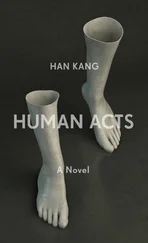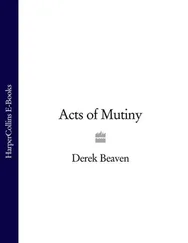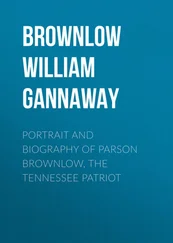Greg Rucka - Patriot acts
Здесь есть возможность читать онлайн «Greg Rucka - Patriot acts» весь текст электронной книги совершенно бесплатно (целиком полную версию без сокращений). В некоторых случаях можно слушать аудио, скачать через торрент в формате fb2 и присутствует краткое содержание. Жанр: Триллер, на английском языке. Описание произведения, (предисловие) а так же отзывы посетителей доступны на портале библиотеки ЛибКат.
- Название:Patriot acts
- Автор:
- Жанр:
- Год:неизвестен
- ISBN:нет данных
- Рейтинг книги:5 / 5. Голосов: 1
-
Избранное:Добавить в избранное
- Отзывы:
-
Ваша оценка:
- 100
- 1
- 2
- 3
- 4
- 5
Patriot acts: краткое содержание, описание и аннотация
Предлагаем к чтению аннотацию, описание, краткое содержание или предисловие (зависит от того, что написал сам автор книги «Patriot acts»). Если вы не нашли необходимую информацию о книге — напишите в комментариях, мы постараемся отыскать её.
Patriot acts — читать онлайн бесплатно полную книгу (весь текст) целиком
Ниже представлен текст книги, разбитый по страницам. Система сохранения места последней прочитанной страницы, позволяет с удобством читать онлайн бесплатно книгу «Patriot acts», без необходимости каждый раз заново искать на чём Вы остановились. Поставьте закладку, и сможете в любой момент перейти на страницу, на которой закончили чтение.
Интервал:
Закладка:
I moved to New York with an Army buddy, we got an apartment in the Village, and I tried to find work as a personal security agent, but everyone else called me a bodyguard. I went to the big firms-like Sentinel Guards, run by Elliot Trent-in search of work, and I got a couple of interviews, but they didn't go well. I was outspoken and probably too full of myself, and my resume wasn't anything to be crowing about. I ended up working alone most of the time, but every so often I would cross paths with others in the field, and that's how I met Natalie Trent, and that's how we became friends.
I did pretty well as a bodyguard, and worked for a lot of people, some of them worth my time and more of them not. My Army buddy died and Natalie and I had some rough times as a result. I ran into the officer I'd protected in the Army again by running into his daughter first, and that changed my life, and I fell in love, or thought I did, on more than one occasion. I kept on trying to protect people, and a lot of the time I succeeded, and then Natalie and I and a couple of others found ourselves protecting a man from one of The Ten that everyone called John Doe, because no one had a better name for him.
John Doe turned into Drama, and, later, Drama turned into Alena Cizkova.
The number of people Jason Earle is responsible for killing, either with tacit approval or by direct order, either deliberately or inadvertently, is unknown. Only two were ever verified to my satisfaction. There are possibly hundreds more, if not thousands.
He is suspected of committing Gorman-North resources to the forcible relocation of six hundred and seventy-three Goajiro Indians in northern Venezuela, in pursuit of an exploration contract given to GSI by the Venezuelan state-owned oil company, Petroleos de Venezuela S.A. The land this particular Goajiro tribe lived on had been ceded to them in a very well publicized treaty with their government, and their refusal to move was understandable.
The story, unsubstantiated, goes that there was some sort of accident upriver, a chemical spill into the water supply for the tribe. Fish died first, and then members of the tribe began to fallill. Emergency aid workers arrived with uncharacteristic speed, attempting to treat those Goajiro who had already become sick and to secure a new clean-water source for the rest of the tribe. They delivered medicine and bottled water, food and blankets.
Despite their swift arrival, however, almost all of the tribe perished.
From drinking the contaminated water.
Instead of the water in the bottles.
Or maybe what made them sick was the water in the river, and what killed them was the water in the bottles.
The emergency aid workers and their supplies were sourced from Gorman-North.
There's another story, goes like this:
In a country in the dry and hot and fairly sandy part of the world, where there is an awful lot of oil apparently to be found buried not all too deep beneath the ground, GSI had a very large contract to help build the machines that would bring this oil to the surface. They maintained certain fields of pumps and pipes, and they built a little piece of America in the middle of a very Islamic country so they could do their jobs in comfort, and without bringing offense to their hosts through any cultural insensitivity or inadvertent misunderstandings.
And this was well and good for a great number of years, and GSI found themselves making pretty good money as a result of this arrangement.
Then, one day, the Old Prince who was the country's Minister of Oil died, and a New Prince took his place. The New Prince looks around, and cannot help but notice that everywhere his country's oil is coming to the surface, it's coming there through no fault of his own nation. There are a lot of young people in his nation looking for work, and this is their most precious resource, the New Prince reasons, and he announces his intention to end his country's contracts with those foreign service providers who are doing what, he now believes, could be done just as well by his fellow countrymen.
This affects not only GSI, but other companies like it. Needless to say, GSI and the other companies like it are not happy at this news. They feel it's imperative that the New Prince understand the relationship is a mutually beneficial one, and that terminating it would be detrimental to all the parties involved. The New Prince reportedly responds by saying that, while he sees the detriment to their interests, he fails to see it to his own.
Men at GSI and the other companies like it begin to do everything they can to stop the New Prince. They entreat him, and his father, the King, and failing both, then turn to their own governments in the hopes of bringing appropriate political pressure to bear. Nothing works.
Then the New Prince's plane goes down in the desert, and there are no survivors. No one sees the plane go down. It just disappears from radar. There's a lot of desert, and not a scrap of wreckage is ever found.
The concessions remain in place.
Then there's the story about the reporter from Der Spiegel, a man named Kurt Hayner.
Herr Hayner, it seems, had asked himself one day just how it was that a certain nation in Central America had been able to suddenly crush a revolutionary movement that had plagued it for almost two decades, and that, in recent months, had begun to gain more and more popular support. How it was that, after years and years of combating these revolutionaries to no appreciable result, the country in question had so quickly solved its problem.
In the course of his investigations, Herr Hayner learned that an envoy from the country in question had paid a visit to certain representatives in Washington, D.C., asking for their assistance. The envoy argued that the revolutionaries in his country certainly would not have a good relationship with the United States as their political ideology was not one the United States approved of, and perhaps, for that reason, the United States might wish to offer some assistance in dealing with the problem.
The answer the envoy received was, at first, not at all what he had hoped for. No, he was told by these representatives, we cannot help you, much as we wish we could. Politically, it's impossible for us to get involved at the present time.
But, they told the envoy, you might wish to talk to someone at Gorman-North.
So the government of the country in Central America paid Gorman-North an immense amount of money to come and "advise" its military on methods to combat the revolutionaries.
This is not what made Herr Hayner a threat. What made him a threat was when he learned just how Gorman-North had been "advising." The words "intimidation" and "fear" and "preemptive action" and, most of all, "coercive interrogation techniques" were going to most likely feature very prominently in his piece for Der Spiegel.
That made him a threat.
So someone called a man in Wilmington, and asked if he could speak to Jacob Collins. No, the caller was told, I haven't heard from Jake in twenty years, not since high school, I figure. But, hey, what the hell, you can leave your name and a number, and if I bump into him, I'll make sure to give him the message.
Herr Hayner died in a house fire at his home outside of Berlin sixteen days later. My crimes are yet to be numbered.
CHAPTER
At Trent's insistence, we were staying with him at his home, and his arguments for us doing so were both persuasive and logical. Regardless of what CNN might be reporting, Alena and I were still ranking high in the Most Wanted category, and while we'd made it this far without anyone picking up the trail, there was no reason to push our luck. The last thing Trent wanted, now that he had us, was a sharp-eyed police officer or a concerned citizen with a memory for faces making us as we were moving from point A to point B. For the duration of the planning of the job, at least, we were going to remain his guests. It was, he insisted, one of the things he was paying for, the right to look over our shoulders.
Читать дальшеИнтервал:
Закладка:
Похожие книги на «Patriot acts»
Представляем Вашему вниманию похожие книги на «Patriot acts» списком для выбора. Мы отобрали схожую по названию и смыслу литературу в надежде предоставить читателям больше вариантов отыскать новые, интересные, ещё непрочитанные произведения.
Обсуждение, отзывы о книге «Patriot acts» и просто собственные мнения читателей. Оставьте ваши комментарии, напишите, что Вы думаете о произведении, его смысле или главных героях. Укажите что конкретно понравилось, а что нет, и почему Вы так считаете.












